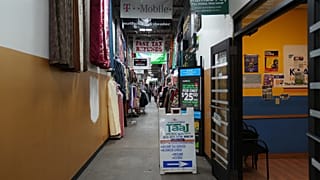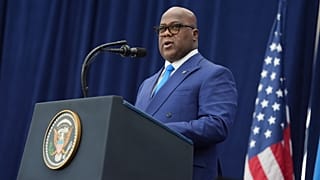USA
Prices at salons have been going up with inflation and higher rents, but shoppers and stylists alike are more squeezed as U.S. President Donald Trump administration’s tariffs on imported goods begin to drive up prices for plethora of products many Black women consider essentials.
Much of the synthetic braiding hair, human hair for extensions, wigs and weaves, styling tools, braiding gel and other products is imported from or has packaging from China, which was subject to a combined 145% tariff in April.
The Associated Press spoke with several Black hair industry experts, beauty supply store owners, and wholesale companies, as well as nearly two dozen Black stylists and braiders, some of whom are grappling with the possibility of having to raise prices even as clientele has slowed because of the tight economy.
On Wednesday, a three-judge panel of the U.S. Court of International Trade blocked Trump from imposing those tariffs, but the administration said it will appeal. Earlier this month, the United States agreed to drop the 145% tax Trump imposed on goods imported from China to 30% while the two economic superpowers negotiate new trade agreements.
That is still high, noted Marty Parker, a University of Georgia business professor and supply chain expert who used to work in the diverse hair care industry. Most other countries face baseline tariff rates at 10%.
Regardless, Parker said the “next 100 days are already shot” for many items, as the costs companies faced at ports make their way down to consumers and supply shortages get worse. And it's unclear what will happen if on-going trade negotiations break down between China and the U.S. Some stylists said a recent drop in clientele is likely connected to the increase of prices for virtually everything, and not just in the Black hair care industry.
They said weeks of Easter and Mother’s Day weren’t as busy as they used to be.Atlanta stylist Yana Ellis, who also sells products like wigs, paid an extra $245 in shipping for 52 bundles of hair in March compared to 40 bundles in December.
And AaNiyah Butler, another stylist, said her shipping costs for human hair from China more than doubled from February to May.
Similarly, some wholesale hair stores have seen costs rise or are expecting them in the coming weeks. Even synthetic hair, which before could cost as little as $6 to $10 per pack at the beauty supply store, has crept up.
In early May, north Atlanta natural stylist Dajiah Blackshear visited the beauty supply store to find the price of hair from China that she has used for years now costs $289 — she had paid $100 less for the same product three weeks before.
The owner of the beauty supply store complained he may have to stop selling that brand of hair because it went up so much. Blackshear doesn't want to make clients bring in their own hair, because she likes to vet the quality of the product she uses for various hairstyles.
But if hair prices and other expenses continue to mount, she may have to raise her prices.“Clients pay attention to where they're spending their money,” said Blackshear. “So when they're sitting in the chair and they're like, 'OK, my sew-in used to be $200, why is it $250 now?' and I have to explain to them what's going on and have that conversation, some people are OK with it, but for a lot of people they're like, 'OK, I won't be seeing you for a little while. I'm gonna go have to find somebody that fits within my budget."
With hair that requires careful attention to keep it healthy and workplace pressures that favor certain styles, many Black women spend hundreds of dollars at salons on extensions, weaves, wigs and braids each month.
The global Black hair care industry was worth more than $2.5 billion in 2023, according to market.us, and Black women spend six times more on hair care than other ethnicities.










01:01
South Africa to step aside from G20 during United States presidency
01:00
Fifa pass launches to help fans travel to US for 2026 World Cup
Go to video
TikTok finalizes a deal to form a new American entity
01:38
Donald Trump's 'Board of Peace' launched amid fears it will rival UN
00:00
Greenlandic authorities tell residents to be prepared in case of crisis
01:58
Backlash in Mogadishu against 'ignorant' Trump comments about Somalia